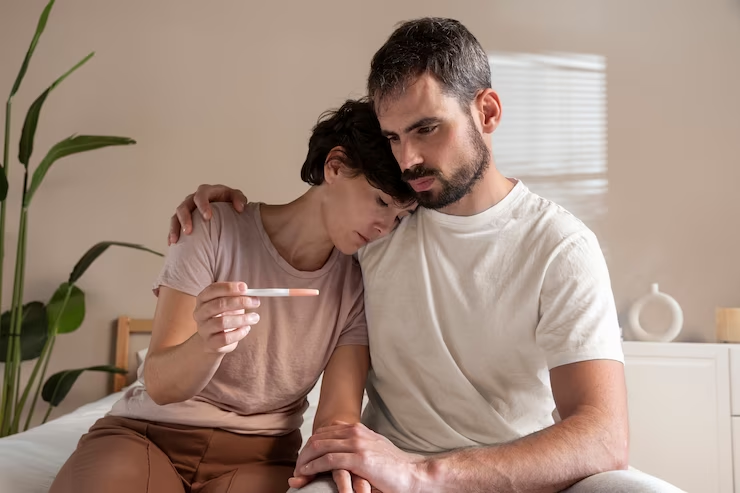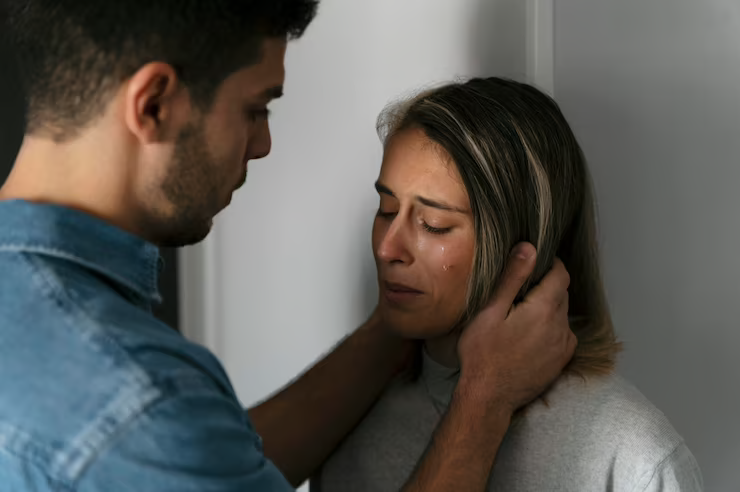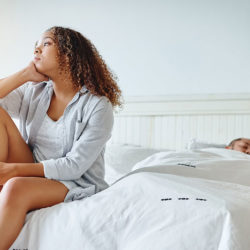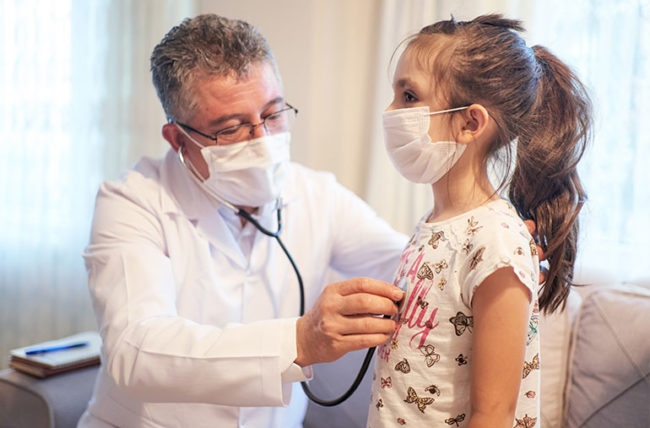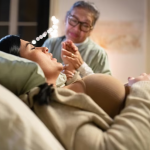What do you imagine when you hear the word menopause? You might be focused on fighting off hot flashes. You might be worried about gaining weight. You might be excited to no longer have your period.
What changes have you made to your sexual life? Menopause can cause a decrease in desire for some women or an uncomfortable sexual experience. You and your partner may feel stressed, depressed and confused.
It doesn’t need to be this way. Women’s Health Specialist Holly Thacker MD explains the impact of menopause on libido, and what you can to do better understand your changing menopausal body needs.
Menopause and sexuality
When you enter menopause, the estrogen level drops.
Dr. Thacker says that the vagina and external male genitalia contain a high concentration of estrogen-receptors. When you lose hormones, the tissue shrinks.
Lower levels of estrogen can also lead to a reduction in the blood flow to your vagina. This can cause it to be less sensitive to touch, and less responsive to physical stimulation.
This can all make sex more uncomfortable, painful, and difficult. Menopause and the emotional changes it brings can make you lose interest in sex.
Tips on sex during the menopause
What can a woman going through menopause do? The doctor will not tell you to “grin and endure” . vaginal itchiness, pain, and lack of desire are three of the most common concerns about sex in menopause. There’s help available for all of these.
Dr. Thacker explains, “There are hormonal and nonhormonal treatment options.” “No woman should experience pain or dryness during sexual activity.”
Vaginal Dryness: How to treat it
Less estrogen may mean less vaginal fluid. Menopause can cause vaginal drying, which is one of the most common menopause symptoms. This can be frustrating and uncomfortable.
Dr. Thacker discusses some options.
- Vaginal Lubricants:Over the counter vaginal lubricants are a good way to supplement natural lubrication. Dr. Thacker says that there are many water-based lubricants , and that vitamin E oil or coconut oil might also be effective. The best lubricants to use are water-based ointments (such as K-Y Jelly, Astroglide and Pre-Seed), but silicone-based lubricants can also be used. Avoid mineral oil when using lubricants.
- Moisturizer Vaginal moisturizers are similar to lubricants but stay in the vagina for longer and adhere to vaginal wall. Replens (r) and Silk E(r), which are lubricants, can be used twice a week.
- Vaginal Estrogen: If lubricants or moisturizers don’t work, vaginal estradiol therapy prescribed by a doctor can help. “These local agents improve symptoms and help restore the mucosa of the vaginal canal to normal,” notes Dr. Thacker. You can get it as a dissolvable tablet, cream or long-term insert.
Topical lubricants or moisturizers only treat your symptoms and are not a long-term solution. Dr. Thacker says that while a topical lubricant or moisturizer might temporarily improve your symptoms, it does not change the vaginal integrity.
Other words, hypersensitivity near the vaginal entrance will not necessarily improve after lubrication. If the dryness persists, you should consult your gynecologist. They may prescribe vaginal estradiol or other options such as vaginal suppositories and nonestrogen or oral medications.
Get help for painful sex
Unintentional pain is the last thing that you want when it comes to sex. Vaginal dryness can be painful for some women.
Dry and fragile vaginal tissues can cause vaginal atrophies. This can lead to burning, itching or pain during sexual activity. Some women experience friction burns during sex.
Dr. Thacker warns, “Don’t wait until the pain is severe before you act.” If you wait, even after we have treated the thin lining to make it healthy again – which is usually done within a few weeks – the muscles in the vagina can go into spasms because they remember painful sexual activity.
Intercourse that is painful may have other causes. If you are experiencing pain, then it’s best to consult a doctor. This issue can be caused by:
- Endometriosis.
- Ovarian cysts
- A pelvic mass.
- Scar tissue after surgery
- Sexually transmitted infections
- Vaginitis.
Dr. Thacker advises that if you are experiencing pain during intercourse, an examination is necessary to determine the reason.
Increase your sexual receptivity
It’s important to understand that there is no such thing a “normal” sex life. But, if you’re unhappy because your libido has slowed down, it’s and not.
But what is the impact of menopause on your sexual drive? Dr. Thacker says that hormones are not the only thing affecting your sexual life. Emotions also play a major role. If menopause has a negative impact on your mental and emotional health, you may find that you are less interested in sexual activity.
Dr. Thacker recommends increasing receptivity, or your willingness to have sex. You can improve your sexual life by following these tips.
- Communication with your partner can be improved.
- Consider sex positions which allow you to control penetration.
- Schedule date nights.
- Strengthen your pelvic muscles by performing Kegel exercise.
- Read erotic novels
Menopause can also cause depression. This is because decreased estrogen levels can lead to emotional turmoil. Depression can also affect your sex life . Ask your doctor how to feel like yourself again in the bedroom, and even beyond.
Menopause is not the time to give up on sexual activity
Talk to your doctor if you are concerned about your sexual (dys-)function. Try not to be embarrassed. Your healthcare provider is there to assist you with these concerns.
Dr. Thacker says, “An integrated approach can treat both the medical and emotional problems associated with menopause.” You deserve it!




